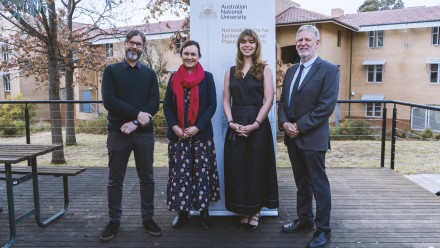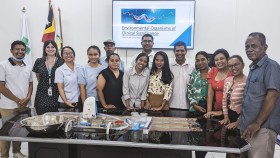War on worms is not yet won
Share
An unprecedented global push to provide deworming tablets to the poorest people on the planet has only partially succeeded, says a health researcher from The Australian National University (ANU).
While the millions of dollars-worth of deworming tablets that have been donated had saved many lives, the approach needed to be coupled with sanitation and hygiene to achieve lasting success said PhD student Suzy Campbell from the Research School of Population Health.
"Deworming by itself will not control intestinal worms, because people will get re-infected from worm eggs in their environment," she said.
"However with the new global Sustainable Development Goals, there is a great opportunity for the infectious diseases sector to link with the water sanitation and hygiene sector to really break the cycle."
Intestinal worms affect more than one billion of the poorest people in the world, especially children.
Since 2012 partnerships including large pharmaceutical companies, the United States Agency for International Development and the UK Department for International Development and philanthropic organisations have made a push to distribute deworming tablets in the poorest countries.
However detailed evaluations of the best approach for controlling sustainably are scarce.
ANU is currently conducting a study of approaches to intestinal worm control that integrate deworming medication with water sanitation and hygiene in Timor-Leste.
"It's incredibly difficult and expensive to evaluate this kind of approach but we hope we can contribute to the knowledge for a more holistic approach to control and prevent intestinal worms," Ms Campbell said.
Ms Campbell's review article has been published in Trends in Parasitology.
Hear Ms Campbells interview on ABC 666 Radio (46:00)











